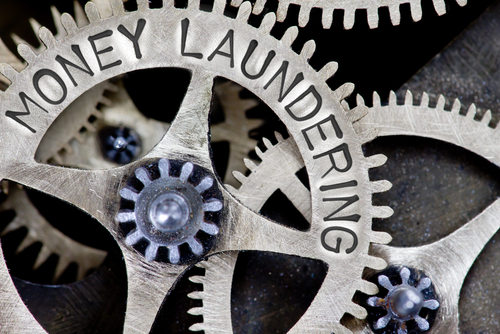Lawyer who suggested then abandoned 'Breaking Bad' money laundering plot is indefinitely suspended

Image from Shutterstock.com.
An Ohio lawyer who offered to launder money for a confidential informant he thought to be a drug dealer has been indefinitely suspended by the Ohio Supreme Court.
The lawyer, Matthew Joseph King of Cleveland, was sentenced to 44 months in prison after rejecting a more lenient plea deal because it would have required him to surrender his law license, according to the Nov. 19 Ohio Supreme Court opinion imposing the indefinite suspension.
Court News Ohio and Cleveland.com have coverage.
King had proposed money laundering techniques he had seen on the TV show Breaking Bad to the informant, according to a federal appeals court decision upholding King’s conviction. King said he could set up a sham corporation, or he could launder money through his IOLTA account by providing fictitious legal services for the man.
King accepted $20,000, but he didn’t use either approach, according to the Ohio Supreme Court. Instead, he returned the entire $20,000 to the informant and also wrote him two $2,000 checks. According to King, the informant absconded with the $20,000—which the FBI had given him—and also cashed and pocketed one of the $2,000 checks from King’s personal checking account.
The decision says King returned the $20,000 because he decided not to carry out the scheme. It does not explain why King wrote the two $2,000 checks.
King was released in August 2018 after serving 22 months of his prison sentence.
King had testified that he was an alcoholic and had successfully completed recovery programs while in prison. At the time of his crime, he was also dealing with his father’s significant health problems, a difficult divorce, and estrangement from his teenage daughter, the Ohio Supreme court said.
A judge who was King’s Alcoholics Anonymous sponsor testified that King was currently sober and was a talented lawyer able to resume the practice of law.
King had argued that a two-year suspension was the appropriate sanction, while the Cleveland Metropolitan Bar Association recommended permanent disbarment. The Ohio Supreme Court accepted the recommendation for an indefinite suspension made by the court’s Board of Professional Conduct.
“There is no doubt that King engaged in a serious crime that involved dishonesty, fraud, deceit and misrepresentation or that his crime adversely reflects on his honesty, trustworthiness and fitness to practice law,” the Ohio Supreme Court said. “But based on the facts and significant mitigating evidence before us, we believe that King may be able to rehabilitate himself and once again establish that he possesses the requisite character, fitness and moral qualifications to practice law.”
King will have to show that he completed his three-year term of supervised release in the criminal case when he petitions for reinstatement.



